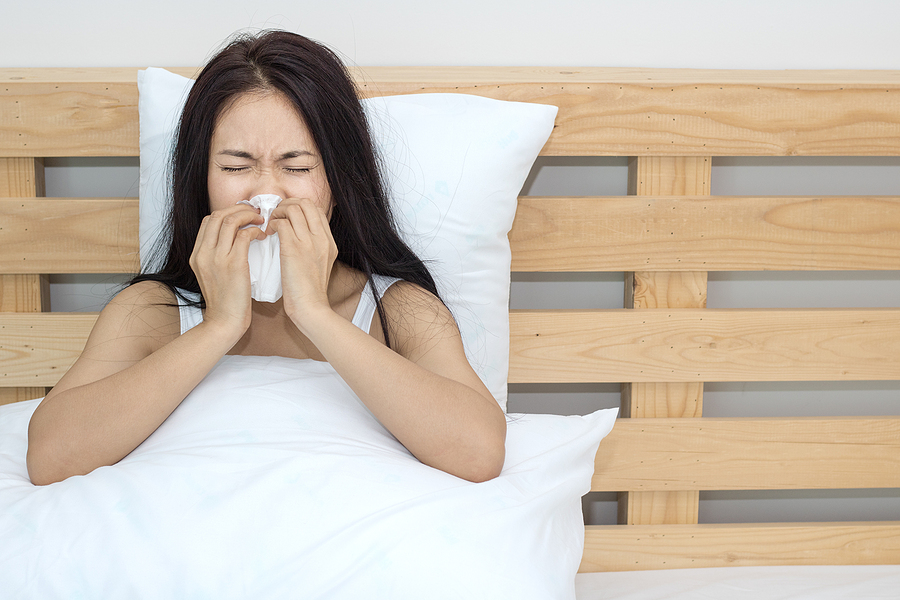Floridians know that allergy season in the sunshine state can be a brutal time filled with clogged noses, frequent sneezing, and burning eyes. And, worst of all, it can have a big impact on your quality of sleep. So, what can you do about it? Here is everything you need to know about getting back to sleep during the pesky allergy season.
Related Blog: Is Your Mattress Making Your Allergies Worse?
How Can Seasonal Allergies Hurt Sleep?
Research studies have shown that people with allergic rhinitis took longer to fall asleep, slept for fewer hours at night, and felt sleepier during the day compared to people without allergies.
Allergens irritate your nasal passages hence making breathing difficult. When there is a strain with your breathing, you will struggle to fall asleep. Also, nasal congestion often worsens during the nighttime, causing you to spend your night trying sneezing or coughing involuntarily.
In the long run, long hours of low quality sleep leads to general body fatigue, which affects your performance during the day and, in return, your productivity. Poor performance in your activities can lead to stress which is also a factor that could affect your sleep. It becomes a cycle of sleepless nights, unproductivity and, in the end, impacts the quality of your life.
With allergies, you may experience sleep disturbances like;
- Trouble falling asleep
- Poor sleep efficiency
- Increased snoring
- Short sleep
- Increased risk for sleep apnea
- Insomnia
How to Sleep Better During Allergy Season
Take Allergy Medication at Night
Consider taking your medications during the nighttime. It ensures the drug is still working as you go to bed. You might need to consult your doctor on the same first.
Use an Air Purifier
Air purifiers help to clear your bedroom air of common household allergens like dust mites, pollen, mold, and pet dander coming in from outside.
Dust Your Furniture
A lot of dust accumulated in the room will trigger your allergies. Avoid floor-to-floor carpet, upholstered furniture and heavy drapes in the bedroom.
Also, avoid storing "dust collectors", such as old books, stuffed animals, and fake flowers. Use tightly-woven fabric for your bedding to prevent the trapping of dust.
Close Your Doors and Windows
Leaving your door and windows open during the day invites allergens into your home. Closing them will work to keep allergens outside away from your bedroom.
Keep Pets Away from Your Bedroom
Most Pets have hair and dander, which are two common allergens affecting sleep. Ensure you sleep in a separate room from your pet. Make sure to wash your hands after handling the pets outside your room.
Replace Your Mattress
You can consider getting a comfortable mattress and bedding for quality sleep. Your mattress could be the cause of your allergies. By changing it you will be able to tell if there is any change or not.
Seasonal allergies can be pretty destructive to your sleep habits so be sure to try out some of these tips to make sure you continue getting the best sleep, even during allergy season.
If you’re considering a new mattress to help you get better and longer nights of sleep, visit one of our two locations today to try out your next mattress.




